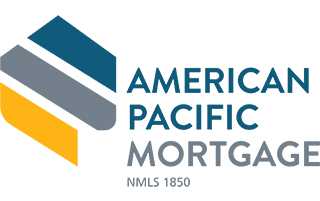The Great Potential of Passive Real Estate Investments
One of the challenges of real estate investing is the amount of work that’s often involved in earning a profit. You typically have to be very involved in not just finding the right real estate to buy but also in ensuring that it turns a profit. However, there are ways to earn a regular income from real estate investments without having to be so active. This form of investing is known as passive income real estate investing.
You typically have to be very involved in not just finding the right real estate to buy but also in ensuring that it turns a profit. However, there are ways to earn a regular income from real estate investments without having to be so active. This form of investing is known as passive income real estate investing.
What is Passive Income?
Passive income is the term used to describe any income that you’re earning on a regular basis that requires minimal work. The income you earn from regular employment is not considered passive income since you are working regularly in order to make it. For example, if you’re an author, writing a book will earn you passive income over your lifetime in the form of royalties (meaning that every time one of your books is sold, you earn a small percentage of its profit). Although an author would have been paid for their initial work (active income), any royalties they make off of how their book performs in the future is passive since they don’t have to do anything. Passive income is possible to earn through real estate investing.
Passive Income From Real Estate Investments
For the most part, it might seem like investing in real estate requires a lot of active work. Buying property and then flipping it for a profit, or waiting until it appreciates in value before selling it do not provide passive income. This is because these methods of real estate investments only result in one-time profits. However, it is possible to earn passive income by investing in rental properties.
Two Ways To Profit
A rental property will earn you passive income as long as you have tenants. However, some might argue that it’s not very passive due to the fact that rental properties have to be managed. While this does require work, you could simply hire a management company to take care of it for you. Rental properties that are rented out by management companies on your behalf are known as turnkey rental properties. There are two main ways to profit from turnkey rental properties:
Revenue Stream Created By Rental Income
The most obvious way to earn passive income from a rental property is through the revenue streams created by the rental income you collect. When you rent out a property, you’ll collect a set amount from your tenants monthly. This amount can be used to help pay off the loan that you probably took out to buy the property. You may have some money left that can be counted towards your profits, although you will be responsible for maintenance and repair costs. However, eventually, that loan will be paid off, and — as long as you still have tenants — you’ll continue collecting monthly rental income. In fact, that income should go up as the years go by since rent increases with inflation.
Mining The Equity Of A Turnkey Investment Property As It Builds
By investing in turnkey rental properties, it is easier to buy multiple properties since not as much work is required on your part. In addition to collecting rental income from a turnkey rental property, you can also mine the equity in those properties as it builds. Your tenants are basically helping you build equity in your properties since their rental income can go towards paying down the loan you used to buy the property in the first place.
You can then leverage that equity in a number of different ways, including taking out low-interest loans by putting the equity up as collateral for renovations that improve the value of the property or to invest in additional turnkey rental properties. You could also sell the property once you’ve built enough equity in it for a profit down the road and use that money towards buying more rental properties.
Active Vs. Passive Real Estate Investing Plus Real Estate Crowdfunding
There are two ways to invest in real estate: actively and passively. Don’t be confused by the term passive real estate investing–it’s not quite the same as earning passive income. In addition to passive real estate investing, there’s also a new type of real estate investing that’s somewhat similar and has been gaining in popularity over the past few years: real estate crowdfunding.
Active Investing
Active investing involves a lot of hands-on work. For example, purchasing and managing rental properties or buying fixer-uppers, renovating them, and flipping them back onto the market for a profit. Essentially, it’s any type of real estate investment in which the investor is actively involved at every stage. House flipping is particularly active since you have to identify properties that are undervalued and invest more money into repairs and renovations. This type of investment is short-term as well, which means you can’t make passive income off of it. Instead, it’s a process that must be repeated over and over again to continue making money.
Even rental properties are typically considered active forms of investing even though you can earn passive income from them. This is because even though you hand off management duties to a management company, you are still responsible for finding and choosing what rental properties to invest in, fixing them up, and hiring the right management company.
Passive Investing
While you could argue that investing in rental properties is a form of passive investing if you buy turnkey rental properties, a more accurate definition of the process involves investing in real estate-related mutual funds and investment trusts. The way it works is that you pool your money together with other investors into a fund or trust, which is then managed on your behalf. Real estate investment trusts (REITs) are publicly traded, which means you can sell off your shares whenever you want. Different types of funds and trusts invest in different types of real estate. However, as an investor, all you have to worry about is buying and selling these investments. It’s considered a true form of passive investing.
Real Estate Crowdfunding
Real estate crowdfunding is a relatively new way to invest in real estate. The process involves an intermediary platform (such as a portal) that brings together sponsors and investors. The portal takes care of a lot of the work by performing due diligence on both the real estate and the sponsors to ensure that they are legitimate and then handles the transaction. As the investor, you can choose what properties you want to invest in. The big difference between this form of investing is that you can choose how much you want to invest. For example, you can invest as little as $5,000 into a property, while other investors may invest more in the same real estate.
The property is then professionally managed, so you don’t have to do anything beyond choosing what you want to invest in and how much you want to invest. Essentially, real estate crowdfunding provides some of the control over your investment that active real estate investing offers, but involves little work beyond the initial investment, just like passive real estate investing.
Which Will Make You More?
It’s important to understand that there’s no sure thing in the investment world. This means that you can’t really identify what form of real estate investing will net you the biggest profit. There are too many factors involved. For example, you can make a substantial amount of money over the short-term flipping houses, but you’ll need a lot of money to invest in the properties on the outset. On the other hand, rental properties can provide significant long-term income, especially if you successfully leverage your equity to purchase numerous rental properties. Again, some initial capital is required, which means you’ll likely need to take out loans.
With passive investing, you don’t need to take out loans since you don’t have to invest such a significant amount in order to invest. However, the less you invest, the less your profits are likely to be. The same can be said about crowdfunding. Choosing how to invest depends a lot on what your investing goals are and how much time you have to dedicate to your investments.
Key Strength Of Passive Investing
If you want to invest in real estate but don’t have the time (or desire) to put the work in to actively manage your investments, then you might be interested in passive real estate investing. Here are some of the advantages of passively investing in real estate:
Ultra Low Fees
Active real estate investments require you to pay significant fees for loans to afford the investment in the first place. Investing in real estate mutual funds or REITs does not require as large an investment, nor will you pay for as many fees. In fact, fees are typically incredibly low–usually less than 1 percent. For example, the Vanguard Real Estate Index Fund has an expense ratio of 0.26 percent a year, while the T. Rowe Price Real Estate Fund has an expense ratio of 0.73 percent a year.
Transparency
Both mutual funds and investment trusts are extremely transparent, which means you’ll know exactly what you’re investing in. In fact, it’s legally required for REITs to disclose their financial information to their investors as well as to report business developments and risks on a regular basis. When you invest in an REIT, you’ll have access to a list of their income-producing real estate. Real estate mutual funds are also very transparent and typically even have REITs as part of their portfolio.
Tax Efficiency
Tax efficiency refers to how much of an investment’s returns are left over once taxes have been paid. Tax efficiency is important because it helps to maximize your returns. REITs are an incredibly tax efficient way to invest because they are tax exempt at the trust level as long as they pay out a minimum of 90 percent of their profits to shareholders. As an investor in an REIT, you’ll simply have to pay regular income tax on your dividends and on the shares that you’ve bought and sold. However, your REIT shares will only be taxed once they have earned back the amount that was used to finance real estate purchases and improvements.
Main Weaknesses
While there are certainly a number of advantages when it comes to passive real estate investments, there are a few weaknesses to consider as well. For example:
Too Limited
There’s not much of a strategy involved when it comes to investing in real estate mutual funds or REITs. You can inspect their portfolios and choose what to invest in and how much, but that’s about it. There are more potential opportunities when it comes to active real estate investment. For example, when you buy a rental property, not only do you earn passive income, you build equity over time as well. This makes it easier to take out loans to invest in other things, whether it’s improving the value of the property you own, buying another rental property, or even trying your hand at flipping a fixer-upper. The most you can do with your REIT shares is sell them and buy new ones.
Small Returns
You’re likely not going to make a significant amount of money over the short-term through passive real estate investing the way that you might by flipping houses. Returns also won’t match what you can earn over the long-term compared to the kind of wealth you can build investing in rental properties.
Don’t Let Anyone Tell You The Real Estate Passive Income Era Is Over
Real estate presents many opportunities for investing. Don’t be scared off by the idea that your real estate investments require you to be active either. There are plenty of ways to earn passive income from your real estate investments, whether by investing in turnkey rental properties or putting your money into REITs or real estate mutual funds. The fact is, there are many ways to invest in real estate and the rewards can be potentially significant.
The views, articles, postings, and other information listed on this website are personal and do not necessarily represent the opinion or the position of American Pacific Mortgage Corporation or US Lending Company.
* For loan examples and more information visit our disclosure page at https://www.uslendingcompany.com/disclosures/





